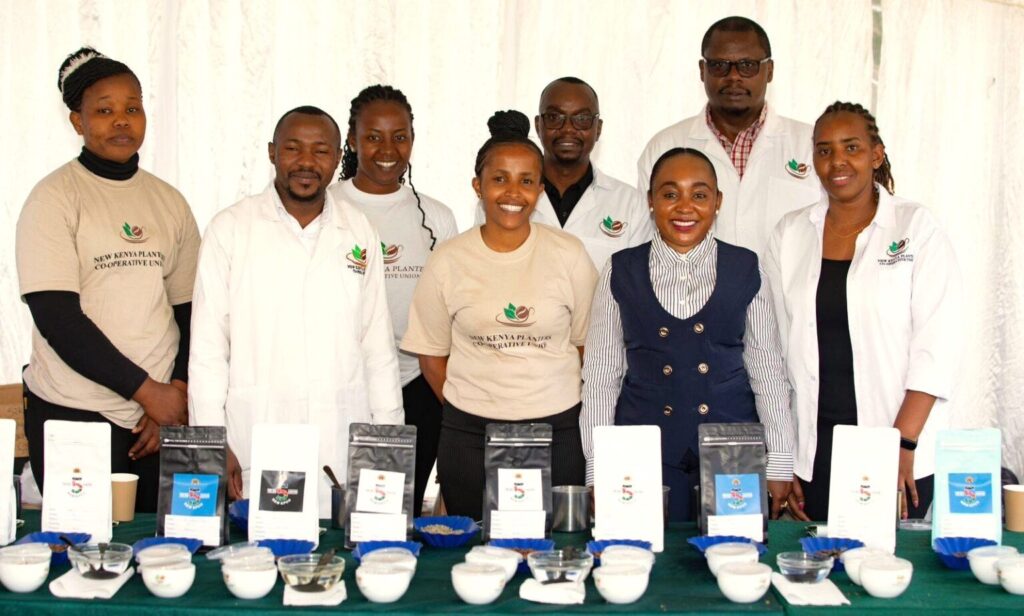Kenya marked the 2025 International Coffee Day at the Utalii Hotel in Nairobi, where the New Kenya Planters Cooperative Union (New KPCU) brought together farmers, cooperatives, and industry stakeholders to celebrate the progress made in the coffee sector. The event emphasized the successful reforms, financing initiatives, and market expansion that have helped revitalize the coffee industry in the country.
Patrick Kilemi, Principal Secretary in the State Department of Cooperatives, highlighted that Kenya’s coffee production had undergone significant fluctuations, peaking at 150,000 metric tonnes in the 1970s to the 1990s, before sharply declining to 30,000 metric tonnes in more recent years. He attributed the decline to ineffective value transmission, which discouraged farmers despite the high quality of Kenyan coffee. However, he noted that production had begun to rise again, with projections to reach 60,000 to 70,000 metric tonnes by the end of the year. The government’s reforms under President William Ruto’s administration were instrumental in this revival.
One of the key achievements discussed was the geographical expansion of coffee farming beyond traditional areas. The government has held over 55 certification meetings across various counties, encouraging new farmers to join the sector. In addition, millions of coffee seedlings have been distributed with the support of the World Bank and the State Department of Agriculture. This initiative focuses on “horizontal growth” by bringing new farmers on board, while also improving existing farms’ productivity through better agronomy practices.
Kilemi also touched on the progress made in governance and regulation, citing the Coffee Bill 2024 and the Cooperative Bill 2024, which have passed through Parliament. These reforms are expected to address long-standing challenges in cooperative governance and institutional efficiency. One major achievement was the implementation of the 2019 coffee regulations, which ensure that farmers receive at least 80% of the value from the Nairobi Coffee Exchange.
In terms of financing, the Cherry Advance Revolving Fund has seen significant growth, rising from KSh 20 million three years ago to over KSh 9 billion. Nearly 590,000 farmers have benefited from this fund, which has reduced their dependency on exploitative credit systems. Additionally, the introduction of the Direct Settlement System (DSS) has helped link buyers, cooperatives, and lenders, making the sector more bankable and enabling farmers to collateralize their payments.
Looking beyond production, Kilemi encouraged a stronger local coffee culture, urging Kenyans to consume more of their own coffee. Drawing a comparison with Ethiopia, where more than half of coffee produced is consumed locally, Kilemi emphasized that a vibrant domestic market would help shield farmers from global price fluctuations. He also highlighted Kenya’s growing efforts to diversify its markets in Asia and beyond, with promotional activities in China, Korea, India, and Russia.
New KPCU Managing Director, Timothy Mirugi, emphasized the institution’s role in empowering farmers, modernizing facilities, and improving transparency in the coffee sector. He also highlighted the importance of inclusivity, noting that efforts were being made to involve more women and youth in the coffee value chain.
Both Kilemi and Mirugi agreed that sustaining the growth of Kenya’s coffee sector would require continued reforms, access to financing, and expanded market access. They expressed optimism about the future of Kenyan coffee and its position as a global leader in quality and excellence.

